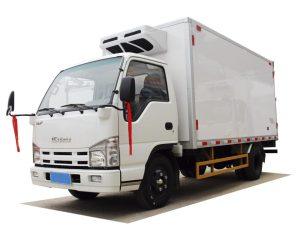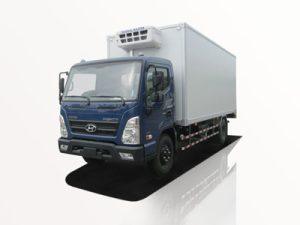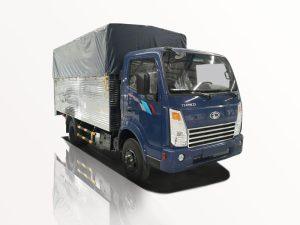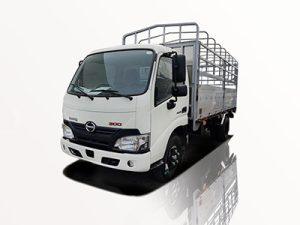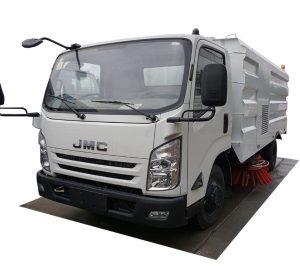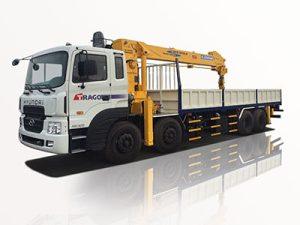Monday to Saturday - 8:00 -17:30
Refrigerated Truck Sale: A Comprehensive Guide to Purchase and Use
Introduction
In today’s fast-paced logistics and supply chain industry, refrigerated trucks, often referred to as reefer trucks, are essential for transporting perishable goods safely. If you’re considering entering this market or expanding your fleet, understanding the nuances of refrigerated truck sales can empower your decisions. This article will delve into the various aspects of refrigerated trucks, the considerations for purchasing them, the advantages they provide, and practical tips for potential buyers.
Understanding Refrigerated Trucks
What is a Refrigerated Truck?
A refrigerated truck is a vehicle specifically designed to carry temperature-sensitive cargo. These trucks are equipped with a refrigeration unit that maintains the trailer’s internal temperature, ensuring that products such as food, pharmaceuticals, and chemicals remain in optimal condition during transportation.
Types of Refrigerated Trucks
- Single-Temperature Refrigerated Trucks: These trucks maintain one consistent temperature throughout the entire cargo area.
- Multi-Temperature Refrigerated Trucks: Equipped with multiple compartments, these can transport different goods that require various temperature settings simultaneously.
- Insulated Trucks: While not refrigerated in the traditional sense, these trucks provide insulation to help maintain the internal temperature for short distances or specific conditions.
The Importance of Refrigerated Trucks in the Supply Chain
Refrigerated trucks play a critical role in the supply chain by ensuring the quality of perishable goods. Their importance can be highlighted by the following points:
- Minimizing spoilage and waste of food products.
- Maintaining regulatory compliance for transporting pharmaceuticals.
- Enhancing customer satisfaction by ensuring goods arrive in pristine condition.
Factors to Consider When Buying a Refrigerated Truck
1. Type of Goods Transported
The type of goods you plan to transport significantly affects your choice of a refrigerated truck. For example, transporting frozen foods requires a more robust refrigeration system than transporting fresh produce.
2. Size and Capacity
Refrigerated trucks come in various sizes and capacities. Consider how much cargo you intend to transport and choose a truck that meets those requirements effectively.
3. Temperature Control Features
Look for trucks with reliable temperature control systems. Advanced features such as digital monitoring and alarms can help ensure that the internal temperature remains within the required range.
4. Fuel Efficiency
Fuel costs can significantly impact your bottom line. Assess the fuel efficiency of various models and consider options that combine power with economy.
5. New vs. Used Refrigerated Trucks
Deciding between new and used trucks involves weighing their respective pros and cons. New trucks typically come with warranties and modern features but can be more expensive. Used trucks are more affordable but may come with hidden maintenance costs.
Popular Brands and Models of Refrigerated Trucks
Here are some well-known brands and models in the refrigerated truck market that you should consider:
| Brand | Model | Capacity (lbs) | Special Features |
|---|---|---|---|
| Isuzu | N-Series | 12,000 | Compact design, easy maneuverability |
| Freightliner | Cascadia | 20,000 | Fuel-efficient, advanced aerodynamics |
| Ford | F-Series | 16,000 | Strong engine performance, customizable |
| Thermo King | SLX Series | Varies | Innovative temperature control technology |
Financing Your Refrigerated Truck Purchase
Financing can be pivotal when investing in a refrigerated truck. Here are some options to consider:
1. Traditional Bank Loans
Obtaining a loan from a bank can offer favorable interest rates, especially if you have a solid credit history. Make sure to present a convincing business plan.
2. Leasing Options
Leasing allows you to use a refrigerated truck without a hefty initial investment. It’s a viable option for businesses looking to minimize upfront costs.
3. Manufacturer Financing
Some manufacturers offer financing options directly. Investigate these plans to find benefits such as lower interest rates or deferred payment plans.
Tips for Maintaining Your Refrigerated Truck
Proper maintenance of your refrigerated truck is crucial for longevity and reliability. Here are practical tips for maintenance:
1. Regular Inspections
Conduct routine inspections of both the truck and its refrigeration unit. Look for wear and tear, and ensure all parts are working correctly.
2. Cleaning
Maintain a clean truck interior, as residues from goods can cause odors and diseases. The refrigeration unit should also be cleaned regularly to function efficiently.
3. Monitor Temperature Settings
Regularly check the temperature settings and records to ensure that goods remain within safe temperature ranges during transport.
4. Scheduled Maintenance
Follow the manufacturer’s recommended maintenance schedule. This will help prevent unexpected breakdowns and extend the life of your truck.
Common Mistakes to Avoid When Buying a Refrigerated Truck
When purchasing a refrigerated truck, it’s essential to avoid common pitfalls:
1. Ignoring the Resale Value
Consider the depreciation and resale value of the truck. High-quality brands may retain value better over time.
2. Not Test Driving
Always take a model for a test drive before purchasing. This step allows you to assess handling, comfort, and performance.
3. Overlooking Warranty and Support
Ensure that you understand the warranty terms and the availability of customer support, which can be crucial for repairs and maintenance issues.
Refrigerated Truck Regulations and Compliance
Understanding the regulations surrounding refrigerated trucks is vital to ensure compliance:
1. Food Safety Standards
For businesses transporting food, be aware of the food safety standards laid out by organizations such as the FDA. Ensure that your trucks comply with these regulations.
2. Vehicle Code Requirements
Each region may have specific vehicle code requirements regarding refrigerated trucks, including registration, inspection, and maintenance. Consult your local regulations.
3. Documentation
Maintain proper documentation regarding the transport of perishable goods, including temperature logs and delivery receipts.
FAQ
1. What is the average cost of a refrigerated truck?
The cost of a refrigerated truck can vary widely depending on size, brand, and new vs. used condition. Expect to pay anywhere from $15,000 for used models to over $100,000 for new ones.
2. How long do refrigerated trucks last?
With proper maintenance, a refrigerated truck can last anywhere from 10 to 20 years. Regular upkeep is essential for prolonging its life.
3. Can a refrigerated truck be used for non-refrigerated shipments?
Yes, refrigerated trucks can transport non-refrigerated cargo, but it’s important to clean and prepare the cargo area appropriately after transporting perishables.
4. How do I find refrigerated truck sales near me?
You can search online marketplaces, contact local truck dealerships, or explore specialized vehicle sales websites that focus on commercial vehicles.
5. Are there specific licenses required for driving refrigerated trucks?
Yes, drivers may need a specialized commercial driver’s license (CDL) depending on the truck’s weight and local regulations.
6. What additional equipment might I need for a refrigerated truck?
Depending on your business needs, you may require temperature monitoring tools, loading equipment, or specialized packing materials to ensure product safety during transport.


